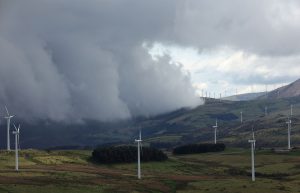The Governor of the Bank of Greece, Yannis Stournaras, introduced the revised National Energy and Climate Plan (NECP) on Friday, emphasizing “There can be no complacency when it comes to climate change.”
Stournaras stressed the need for a coherent framework of action with the goal of reducing the country’s dependency on fossil fuels. The NECP plan, presented by the Minister of Environment and Energy, Theodoros Skylakakis, sets ambitious targets that include a 58% reduction in greenhouse gas emissions by 2030, an 80% reduction by 2040, and complete neutrality by 2050.
The new framework is set to mark the end of the era of energy subsidies and focuses on cost-effective, efficient investments for the country’s energy transition. Skylakakis noted that the revised NECP for 2025-2050 will enable Greece to achieve full energy independence.
It was also highlighted that achieving this goal will require an investment of 436 billion euros by 2050. The plan will contribute 6 billion euros annually to gross value added by 2050, with a 2.5% annual boost to GDP. Additionally, it is expected to create 210, 000 sustainable jobs each year.
As a result of the adoption of renewable energy, electrification, new technologies, and energy efficiency, are set to reduce the average cost of electricity from 145 euros per megawatt-hour to 95 per megawatt-hour by 2050.
The key objective of the revised NECP is to combat climate change, with significant emphasis on green electricity production. The share of renewables in electricity generation is currently at 55%, with the aim being an increase to 75% by 2030 and 95.6% by 2035.
Based on the National Energy and Climate Plan, by 2030 smart consumption meters are expected to be installed for 7.5 million energy connections. Over the following two decades, biogas and hydrogen will be integrated into energy consumption, while energy-saving programs will play a major role, with over 800,000 building renovations planned between 2040 and 2050.












